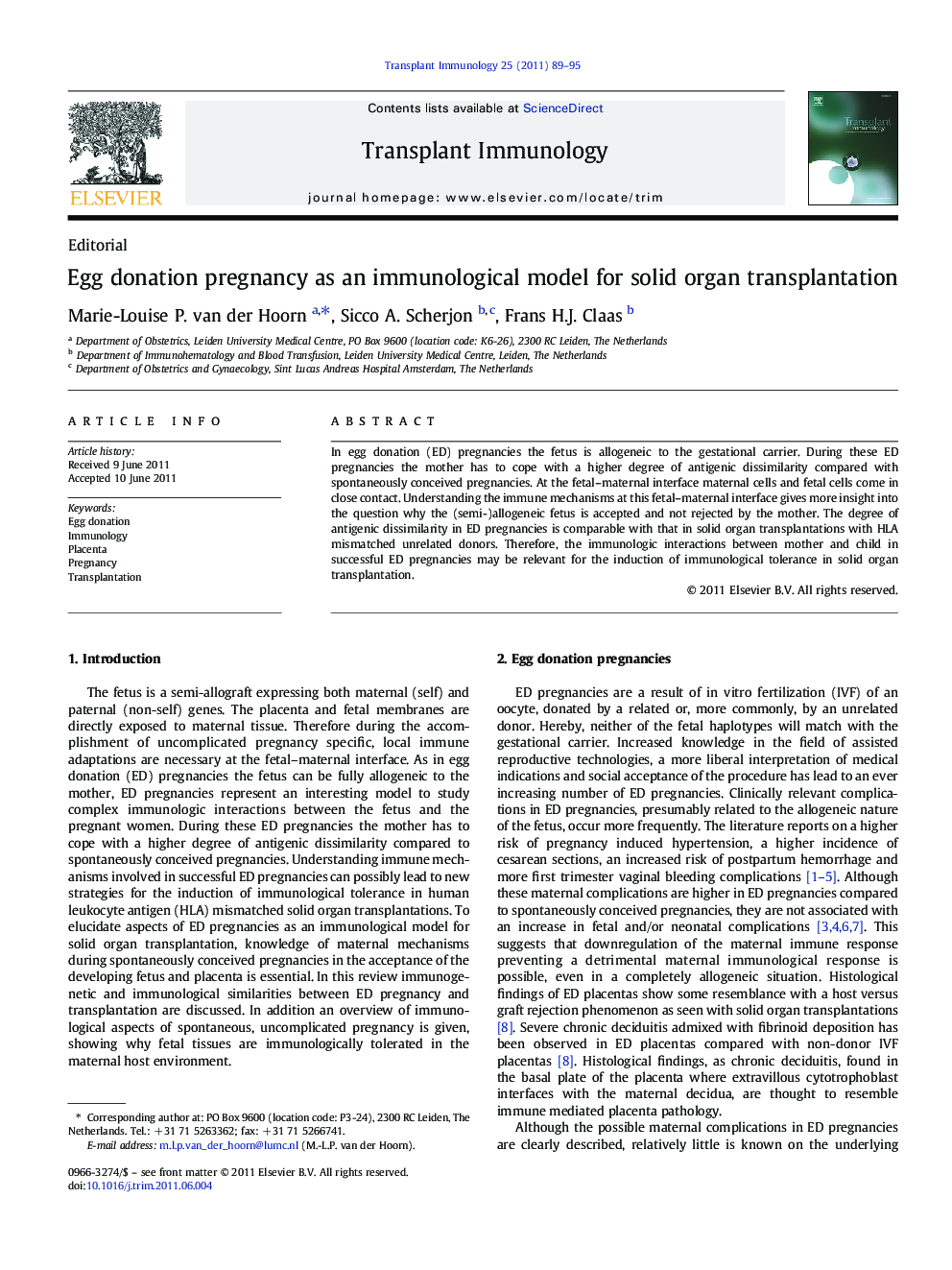| Article ID | Journal | Published Year | Pages | File Type |
|---|---|---|---|---|
| 3392269 | Transplant Immunology | 2011 | 7 Pages |
In egg donation (ED) pregnancies the fetus is allogeneic to the gestational carrier. During these ED pregnancies the mother has to cope with a higher degree of antigenic dissimilarity compared with spontaneously conceived pregnancies. At the fetal–maternal interface maternal cells and fetal cells come in close contact. Understanding the immune mechanisms at this fetal–maternal interface gives more insight into the question why the (semi-)allogeneic fetus is accepted and not rejected by the mother. The degree of antigenic dissimilarity in ED pregnancies is comparable with that in solid organ transplantations with HLA mismatched unrelated donors. Therefore, the immunologic interactions between mother and child in successful ED pregnancies may be relevant for the induction of immunological tolerance in solid organ transplantation.
